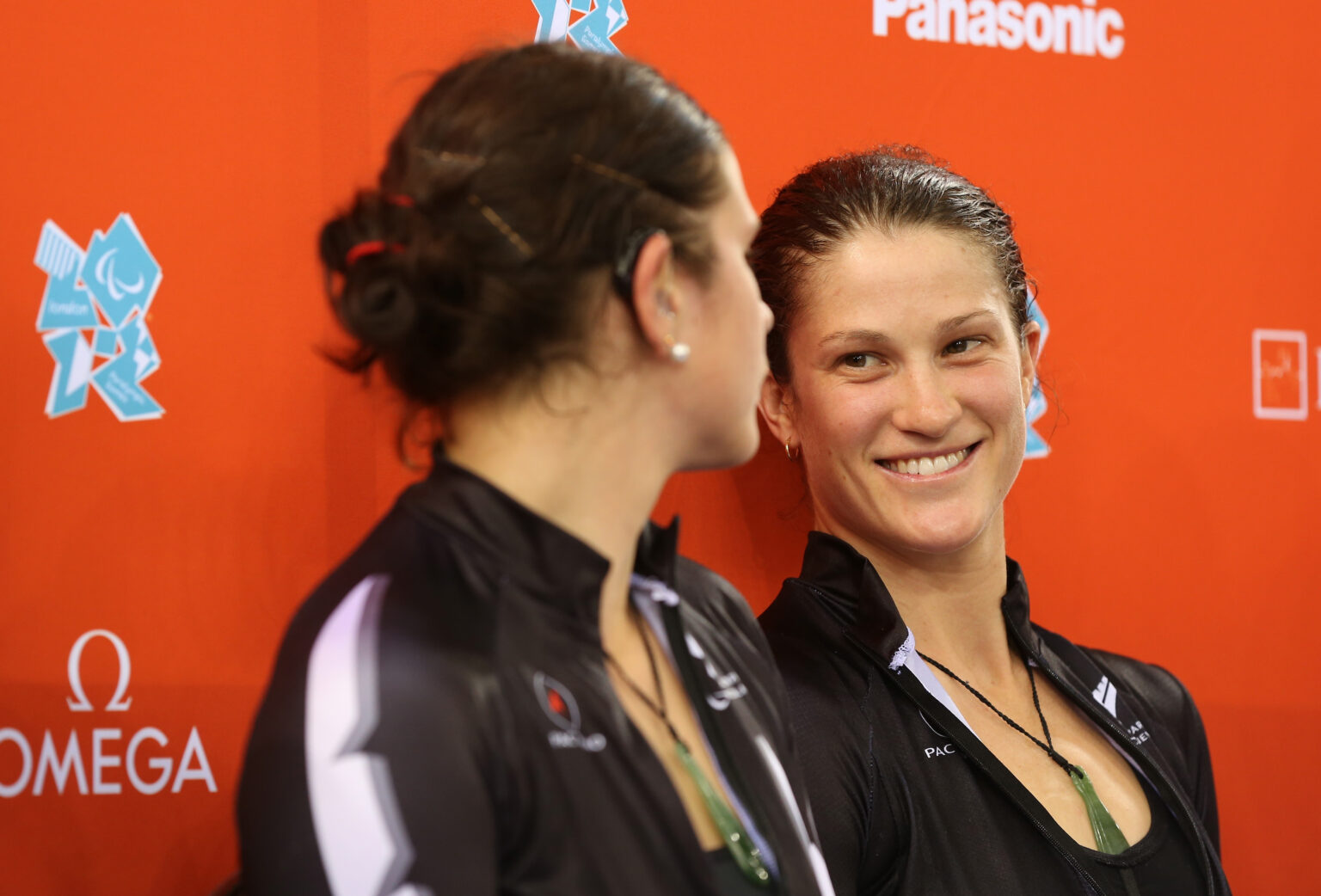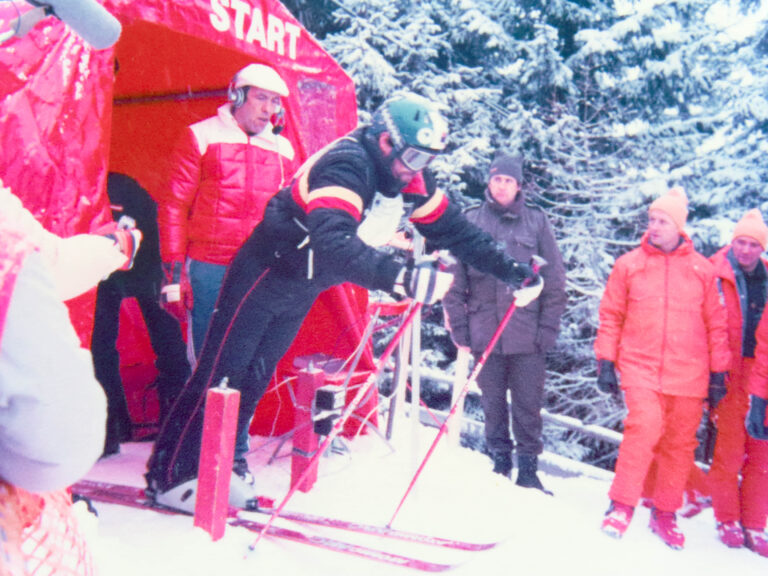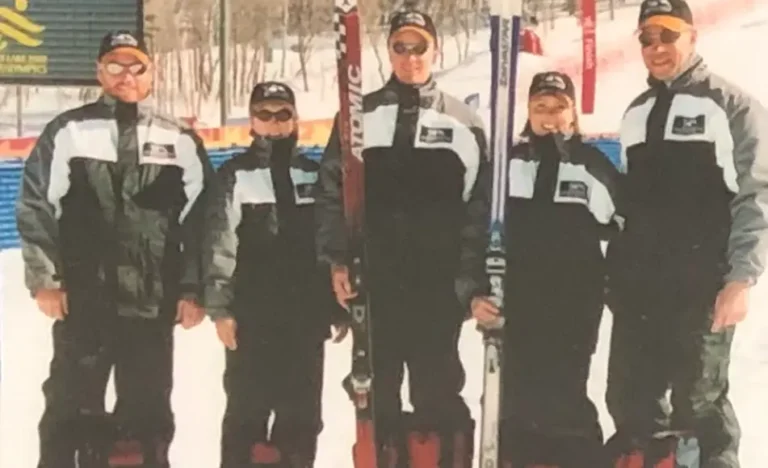Paralympian #187 Laura Thompson MNZM has never shied away from ambitious projects. As a national level basketballer and cyclist, she tasted international competition before later pivoting to Para cycling. As a top-quality tandem pilot, she forged successful partnerships with Paralympian #176 Phillipa Gray MNZM and #194 Emma Foy, snaring a total of five Paralympic medals at the London 2012 and Rio 2016 Paralympic Games.
After a period coaching Para cycling development with Paralympics New Zealand (PNZ), the mum of three boys has more recently devoted her energies into launching āhei – along with her former tandem partner Emma Foy – a resource designed to help kaiako/teachers and coaches plan physical education and sport sessions that work for all kids.
Launched in July this year the resource, already used by more than 450 schools nationwide, is proving a huge hit, and with typical tenacity and laser-focus she is fully immersed in making the programme a success.
“I need very challenging goals to work towards that people think are not possible,” says Laura, 38. “I feel like I need to be contributing towards society, and that’s why I got into Para sport. I need a purpose. Much like it was when I was an athlete, āhei gives me a focus, it is something where I really believe I can make a difference.”
Raised in Christchurch, Laura played multiple sports focusing on basketball. A Junior Tall Fern, she was later selected as a non-travelling reserve with the Tall Ferns for the Beijing 2008 Olympics.
Yet her basketball ambitions came to an abrupt end after she tore a hip labrum, where it was also discovered she had a congenital hip disorder. Encountering complications post-surgery, but determined to still be involved in sport, Laura shifted her gaze elsewhere.
“I was told swimming, rowing or cycling could be options,” recalls Invercargill-based Laura. “I was too old to compete in swimming and following surgery I did not, at that point, have enough mobility in my hip to row. But because I could start riding straight away, is why I took up cycling.”
Approaching the new challenge with typical energy and whole-hearted commitment she made rapid gains. Quickly progressing on the national scene, she then spent a period training and racing as part of the national road team based in France. Later converting to track racing back in Aotearoa New Zealand, she nonetheless found “riding in circles unfulfilling” and missed the team element of her days as a basketball player.
So, when former PNZ High Performance Director Malcolm Humm approached her to become a tandem pilot, after some thought she decided to give it a go.
“Malcolm made me feel guilty and said, ‘if I didn’t come along the vision impaired Para athletes would have no way to ride’,” she explains with a smile. “I’m really thankful I said, yes, because it was the best decision I ever made.”
Starting her Para cycling journey in late-2010 she teamed up with Phillipa Gray. The pair took a little time to find their rhythm as Laura adjusted to the demands of being a pilot. However, exploring the Women’s Tandem Individual Pursuit – having previously focused on the sprints – proved a key moment as Laura and Phillipa were much more suited to the endurance races.

Embracing the “aggression” required to ride the tandem, she also more broadly enjoyed “the sense of belonging” that Para cycling gave her.
“It is where I felt at home,” she says. “I valued the diversity in the team, and it was great to experience that every day. I’m a creative person, who likes challenges and Para sport provides that.”
London 2012 proved a big success as Laura and Phillipa secured the full trifecta of medals with gold in the Women’s Tandem Individual Pursuit, silver in the Women’s Tandem Road Time Trial and bronze in the Women’s Tandem 1km Time Trial.
While she had a kaleidoscope of unforgettable memories from London 2012, the experience brought home a wider philosophical reality.
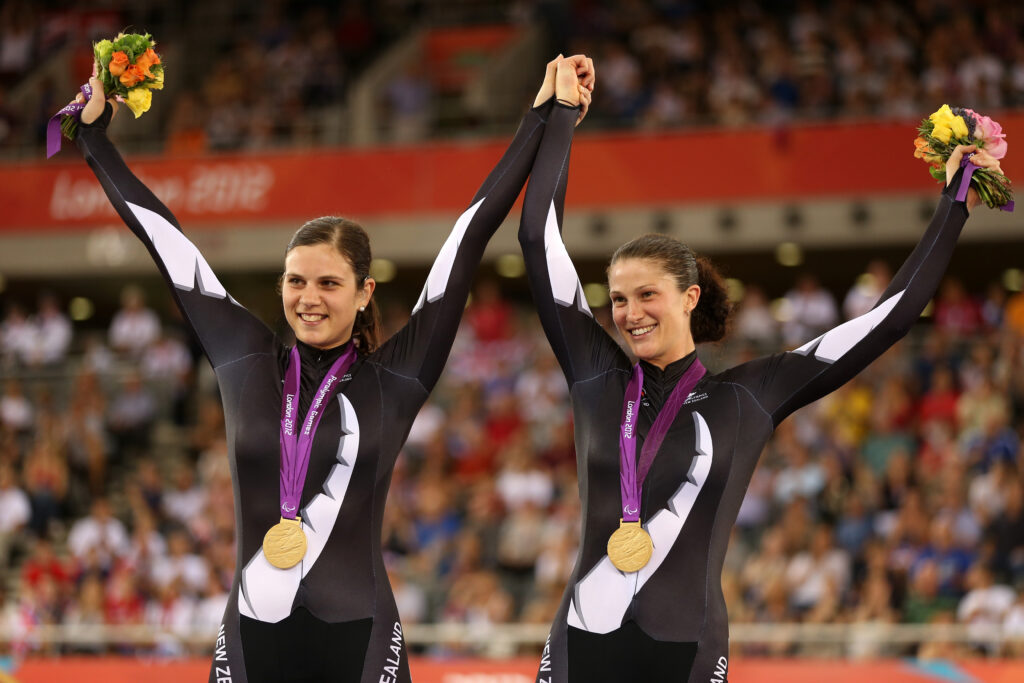
“London was an absolute buzz,” she says. “It was an incredible story. It was where everything changed in my life. But for me, London is where I realised that winning a gold medal is irrelevant. You believe you are chasing this goal that will satisfy you and make you feel complete, and when it doesn’t, it is quite confronting. Yet for me I realised that before you make the podium, unless you are completely satisfied with who you are and what you’ve done to get there, it doesn’t matter how you’ve performed in the race, you are going to feel exactly the same.”
Post-London she connected with a new Para cycling talent in Emma Foy and the pair enjoyed a wonderful relationship. Possessing a similar mindset and with a “great trust” in one another, the duo claimed multiple world titles and set world records in the countdown to Rio 2016, with Laura adding of Emma, “She was a beast, Emma has many qualities and is physiologically very talented. She is powerful, with super glutes and a beautiful pedal stroke for a stoker. As a VI (vision impaired) Para athlete she was very receptive to feelings on the bike. She was a dream to ride with!”
However, on the flight to Rio 2016, Laura’s long-standing hip issues re-emerged. Unable to access her usual force and power through the pedals she was unable to produce her absolute best performance. Despite being badly compromised, the duo still claimed silver in the Women’s Tandem Individual Pursuit and a much-cherished bronze in the Women’s Tandem Road Race – a medal Laura describes as “the best medal I’ve won in my life”.
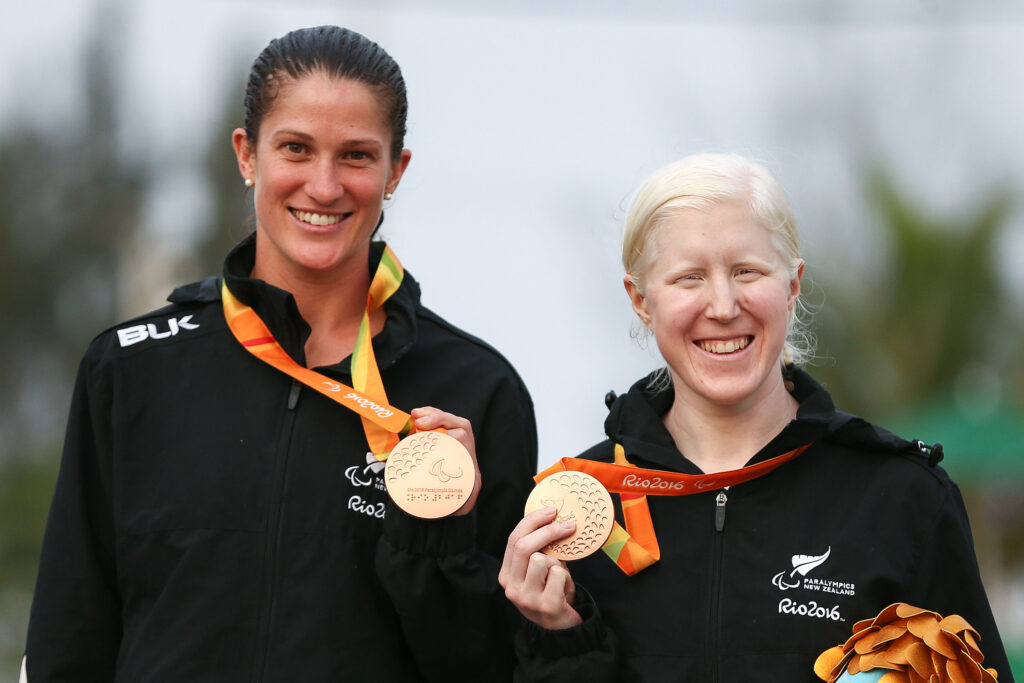
“It was such a hard campaign, and we hadn’t really trained specifically for the road race,” she says. “It was a bit like asking a 400m runner to run a marathon. To ride a hilly 80km course in pain, cramping was absolute hell. But we pushed ourselves and to some extent that bronze medal saved our campaign. I had put a lot on Emma, but with great maturity she never once complained or made me feel bad.”
Post-Rio, Laura retired from Para cycling but stayed involved later serving as a Para cycling coach with PNZ and completed the HPSNZ Te Hāipaitanga female coaching programme.
Yet craving a new challenge and excited by the complex software her partner, Will, helps build for the power sector, she pondered how the software could help fix misunderstandings in Para sport.
“Put a problem to a sportsperson; they’ll answer it in a sporting way,” she says. “But pose a problem to a tech person they solve it in a logical way. There is a complexity in Para sport and sometimes there is a lot of information out there. So, I knew it would be helpful to provide a platform to be able to quickly give people the information they need rather than have to sift through a 300-page document.”
Starting out on its journey by looking through a Para sport lens – āhei – has since developed to be a much wider tool. It offers schoolteachers a plan to deliver and adapt sports resources to deliver quality experiences for Tamariki from Year 1 to 8 and gives affiliated sports clubs access to quality coaching resources and inclusive training activities. Currently offering more than 3000 adaptations, āhei has the scope to grow and Laura is excited to be leading a project which can help bring about social change.
Yet whatever the future holds, Laura remains wedded to Para sport and is fully appreciative of the role it has played in her life.
“People have told me that my contribution (to Para sport) has been nice, but what you get in return is far greater,” she explains. “I feel very privileged to be part of Para sport. I wish more people understood its value.”
***Read more on āhei here.

